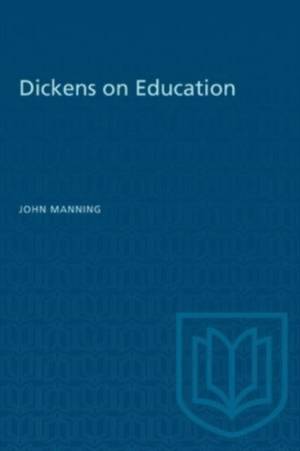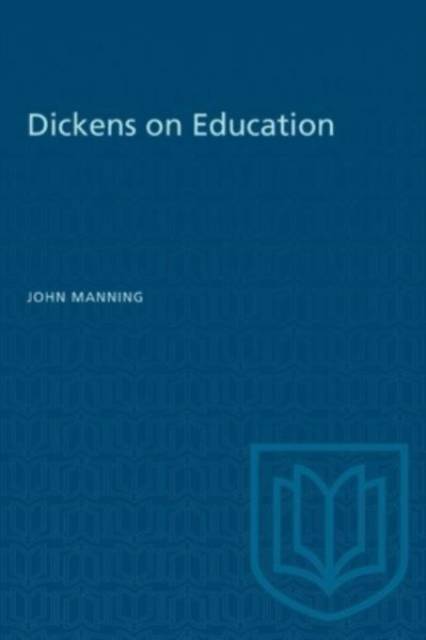
- Retrait gratuit dans votre magasin Club
- 7.000.000 titres dans notre catalogue
- Payer en toute sécurité
- Toujours un magasin près de chez vous
- Retrait gratuit dans votre magasin Club
- 7.000.0000 titres dans notre catalogue
- Payer en toute sécurité
- Toujours un magasin près de chez vous
Description
Many books have been published on Charles Dickens; there are, however, surprisingly few that have made more than passing comment on Dickens's treatment of schools and education. This is the more striking in view of the significance education had for Dickens, the forcefulness of the criticisms he made, and the influence of his opinions on the public.
This account of Dickens's interest in education covers his life and times, and his fiction, speeches, articles, and letters, Since our knowledge of Dickens's own schooling in not very extensive, and minor errors are to be found even in Forster's account of his early years, the author has made a careful analysis of Dickens's formal schooling and other experiences that informed his mind. In the novels and short stories, Dickens discussed some fifty schools and more than that number of teachers. These portrayals of teachers, schools, and school life have been group by Professor Manning under various heads: education through church and charity, education through private enterprise, education of girls, and educational theory and practice. Dickens's views as stated in his articles, speeches, and letters, have been dealt with separately from the fiction, since these utterances must be appraised on a different basis.
In order to provide the background against which Dickens was writing, Professor Manning refers frequently to government documents and the reports of various commissions. He presents evidence from these sources, and from inspectors' reports, biographical and autobiographical works, and private diaries, to show the actual conditions that existed in the various types of schools.
This book should prove valuable to students of English literature, to educationists, and to historians. The general reader will also find in it much of interest, for schooling is within most people's experience, education is everybody's business, and Dickens's admirers are legion.
Spécifications
Parties prenantes
- Auteur(s) :
- Editeur:
Contenu
- Nombre de pages :
- 264
- Langue:
- Anglais
- Collection :
Caractéristiques
- EAN:
- 9781487577360
- Date de parution :
- 15-12-59
- Format:
- Livre broché
- Format numérique:
- Trade paperback (VS)
- Dimensions :
- 156 mm x 234 mm
- Poids :
- 371 g

Les avis
Nous publions uniquement les avis qui respectent les conditions requises. Consultez nos conditions pour les avis.






